Jennifer Freitag's Blog, page 37
June 1, 2012
"We Defy Augury."
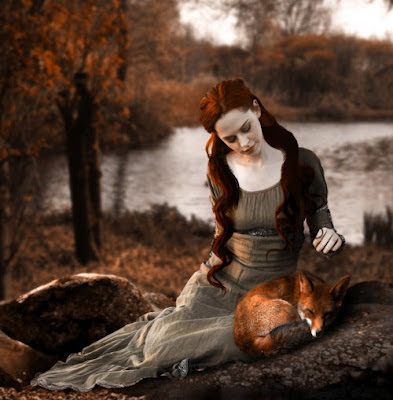 "The readiness is all."Hamlet
"The readiness is all."HamletWhile on my trip I learned a very useful skill: writing on the run. My five-and-a-half by three-and-a-half inch Moleskin notebook (of a lime green hue) doesn't give me a lot of bulk to counteract any joggling that comes from being on the run, but I despise writing sloppily and I needed to write, so I learned pretty quickly how to filter out the craze of New York and Boston and hone in on Plenilune, and manage such tolerably good handwriting that my notebook was once taken from me and exhibited to several members of the class who (evidently - I wasn't privy to any facts) have large, messy handwriting as an example of what handwriting in notebooks ought to be. (I might have felt more pleased about this if I hadn't been yanked out of an otherwise fascinating imaginary world into the stark, breathless bustle of Boylston Street.) So, while I have been gone for almost two weeks, I have been writing. What is a world without pen and paper? I submit that it is an unhappy world.
June Snip-Whippets
“Oh, you’ve done very well with her.” Skander’s tone was both sincere and bitingly caustic. “She looked beautiful this evening—charming, assured—in that red gown she looked like a goddess.”
Plenilune
Most of all she hated herself. She, the victim, had been thrown into this world of crowns as a bone to be squabbled over, a pawn to be moved, a woman to be coddled, a slave to be prodded, a curse to be averted, a fate to thwart.
Plenilune
"Did you think you could play this game with us? You are no match for my family or the quarrels that may arise among us."
Plenilune
Night had fallen low over the land. It seemed to have heaped up so heavily in the sky that it was sinking under its own weight, groaning lower and lower over the fells. She sat wrapped in a fine surcoat of doeskin and ermine, for the summer night was growing chill and the hushing rush of wind in the rowan-wood bore portents of rain, and watched the dark moth-wing dusk gather about them and the firefly-lights spring out of the black.
Plenilune
The old spark flashed into his face. “You come upon a man in the dead of night like a vision, and expect a cool reply? You might let a man collect his wits once you have dashed them out of his hands.”
Plenilune
Rupert was looking off another way: his voice came muffledly: “You know Mark Roy. Those were Aikin Ironside and Brand, his sons. Aikin is much like Centurion in temperament—I do not trust him, though his blade is quick to bite deep. Brand—” Rupert looked round and peered, too, into the gloom after them to where they stood in the ring that was forming round the piles of wood. “Brand has high sentiment and a short temper. He knows how to be violent. He may make a good friend.”
Plenilune
“Centurion of Darkling-law,” said the blue-jay man, leaning close; “politely behind Bloodburn though he has rights enough to be first. He is a good man, Centurion, and a seasoned warrior.” “Is that the measure of a man?” asked Margaret with a faint edge in her voice.
Plenilune
They opened in a blaze of glory. There was a crack and a shock and an arch of light—from which, Margaret could not quite tell—and the two were at it with a passion, hurling spells and casting spells aside to left and right, filling the air with windblown sparks... They were fantastic and terrible, and not altogether safe, to watch. The elements and the full fire of wrath whirled from their hands at each other with the deftness of a juggler whirling his golden balls, but the backwash could be blinding and sometimes blows were cast wide.
Plenilune
Margaret did not remember getting to her feet. At one moment she was seated on the edge of the bed, turned sidewise to see Aikaterine’s face, and the next she was standing before the maid, looking just a little downward into the other’s face, with her forefingers resting heavily on the white-clad shoulders. She could feel the collar bone sharp beneath her fingertips and, at odd, punctuated moments, the soft throb of blood beneath the skin. But it was the eyes she looked into, the almond-coloured, dark-spangled eyes that looked back demurely into her own. There was no fear in them, but there was, perhaps, little hope, too.
Plenilune
“I’m not a man of lies—only passing good looks.”
Plenilune
Published on June 01, 2012 05:50
May 29, 2012
Oh Darling, Let's Run Wild Together
 light up, light upas if you havea choice even if you cannot hearmy voiceI'll be right beside you, dear"run," by snow patrol
light up, light upas if you havea choice even if you cannot hearmy voiceI'll be right beside you, dear"run," by snow patrolAt dinner one evening while my husband and I were on our trip one of his professors asked me in a jesting way if I wrote romance. I don't think any of them have a clue what I do write; when I was given the opportunity to share with the class what I had scribbled that day I backed out for the scene was of the sweet, intuitively companionable kind; I'm not good at reading aloud, it would not have made sense out of context, and I didn't want them to think all I write is romance. I made a confused attempt at an answer, informing the professor that I neither read nor write merely romance (I think I said "straight romance," which, looking back on it, was perhaps an unfortunate choice of words...) but that I can almost never avoid having a thread of romance in my stories.
I don't go out of my way of avoid it, of course. We all love to love, and while Abigail and I have had a lot of good to say about companionable love (as between, say, her characters Justin King and Ethan Prince) which is an attachment that doesn't get enough press, in my opinion, people love reading about people in love. I love writing people in love. I know that in the blogging circles I run in there have been, on almost every blog, some post or another about the topic of writing people in love, or about being in love itself, or whatever conventional phrase you care to use; there has been trepidation, interest, doubts as to the writer's competence in pulling off such an attachment, complete appreciation for literary attachments, the works. It's a big deal. Whether or not a writer feels able to write romance is up to the discretion of the writer, but now that I'm sitting at a keyboard and can think clearly I can say that I love writing romance. I love it with a Doctor Who take-my-hand-and-run kind of thrill, as if every romance I embark upon (real or literary) is an adventure too terrible not to laugh about, and I am standing on the brink of it looking down so far that I can't see the bottom. It's all very well to talk dully about whether or not romance ought to be in "Christian" fiction and whether or not people do it well; you simply don't think about that kind of thing when you're hand in hand on the brink of a high cliff with all the world and time below and before you, and you're about to jump off with the one person in all of time and space that you really care about.
Whether that description is at all clear to you or not I cannot say, but that is the best I can do at making my approach to romance concrete for anyone who cares to know. The attachments are never really about anything: they simply are and cannot cease to be. ("There's a moral somewhere in that, if you like morals.") This was perhaps one of the few things I liked about the film "Centurion." I don't recommend the film: it was very bloody, contained quite a plethora of obscenities, and didn't have a lot of plot. In light of that I was bracing with a sinking heart for the obligatory sex scene, and was surprised when it never came. The romantic attachment between Centurion Quintus Dias and outcast Arianne was instantaneous, intuitive, sweet and strong. I have never - never - seen a romance handled so much to my delight as the one placed most incongruously inside that film. Their mutual care and protection of the other after even a very short acquaintance was as tender as it was fierce, as determined as it was unquestioned. I was shocked. Out of a ridiculously gory movie full of slaughter and conspiracy stretched a single shining thread of sanity. Romance, so often belaboured, jaded, written off, and avoided as if it were the plague, stood out in a raging sea and spoke its piece clearly. It didn't have to offer an apology: it was itself, and that was all it needed to be.
Whichever side of the romantic fence you may be on, either for it or against it, or ambivalent to it, I hope this makes clear why I think and do what I think and do. Life, in a sense, is all made up of our loves and our hates: in myself (and my people) there is often very little difference between the thrill and power of either love or hate, but as far as romance goes it is to me both awful and tremendous, too ancient to be removed, forever too young to keep its feet from dancing on Pook's Hill.
"Keep your chin up, leman. Not long now."Plenilune
Published on May 29, 2012 18:32
Beautiful People - Rupert de la Mare
 I do live. Unfortunately the Penslayer was not able to go everywhere with me as one of our hotels charged a fee to get online. I trust you did not suffer too much because of my absence... But I can say that after averaging ten miles a day on foot for the past twelve days it is relieving to sit down and do something so refreshingly simple as Beautiful People. There is no place like home and nothing like staying at home for real comfort. Due to my absence I am a little belated with this session of Beautiful People, but I don't believe anyone cares much about punctuality in this matter.
I do live. Unfortunately the Penslayer was not able to go everywhere with me as one of our hotels charged a fee to get online. I trust you did not suffer too much because of my absence... But I can say that after averaging ten miles a day on foot for the past twelve days it is relieving to sit down and do something so refreshingly simple as Beautiful People. There is no place like home and nothing like staying at home for real comfort. Due to my absence I am a little belated with this session of Beautiful People, but I don't believe anyone cares much about punctuality in this matter.You all know that this session of Beautiful People is for villains so it probably won't come as a real shocker to find out that I choose to do
Rupert de la Mare(I have consolidated original questions three and four as I found that the best way to answer them coherently.)
1. What is his motive?
Rupert is probably my most complicated and layered character in Plenilune to date (which will hopefully become more apparent as I go along); consequently he is the most difficult to write. His motives for what he does are a combination of ambition, loyalty, pride, honour, and (I do not jest) love. How very pure these driving sentiments may be can be questioned, but I find that the higher the virtue the greater the vice it becomes when it falls.
2. What is he prepared to do to get what he wants?
Anything. What must be done differs from circumstance to circumstance, but in few matters is Rupert terribly burdened by scruples. His ruthless approach to the game is not limited to chess: he is willing to kill, if need be, to set the board according to his design.
3. Is he evil to the core, or simply misunderstood? What was his past like? What about his childhood? Was there one defining moment that made him embrace his evil ways?
Man is born to trouble as the sparks fly upward: Rupert was always a forbidding, contrary child with a rough childhood and a brother who, unintentionally, overshadowed him, but honestly I think he was just born bad and he never mastered his own impulse to evil. In some cases, perhaps, he was misunderstood, but then he is a contradictory character and as such is prone to being misunderstood; on the whole, however, he is just bad.
“Nigh on sixty years I knowed Marenové ‘Ouse, an’ my father afore that, and ‘im father afore that, but never a badder business any of us knowed than young Mus Rupert. ‘E don’t take to soil,” he said passionately, as if Margaret would understand. “Got too much acid in ‘is veins an’ Lord love ye if ye can get a touch o’ lime into ‘is soul.”
4. Now that he is evil, has he turned their back on everyone, or is there still someone in his life that he cares for? (Brother? Daughter? Love interest? Mother? Someone who is just as evil as he is?)
This question has to be answered in light of number three. Rupert de la Mare is a man to hold a grudge. If you cross him he will never forget it, and you can probably bet very safely that somehow, one day, in his own good time, he will retaliate swiftly and terribly. It does not do to say No to Rupert. If you do, however, stick by him, he will stick by you: it is possible that this is a trait characteristic more of his family than of his own heart, but to his credit this singular (if selective) virtue he does possess.
5. Does he like hugs?
It depends on what sort of embrace you mean and who is the other party. He has been known to warmly embrace his friends by way of greeting, but otherwise he does not invite any sort of intimate attachment. Margaret is the only person for whom a sentimental embrace means anything to him and it is one of the only grounds upon which Rupert actually wars with scruples.
6. Is he plagued by something? (Nightmares? Terrible thoughts?)
How neatly five segues into six. Yes, Rupert is plagued. Vice and virtue (a knowledge of good and evil) still clash inside him, though from his point of view they are turned on end and sometimes confused. His desire to be let loose from scruples is so intense that he sees such an end as freedom, while within he is haunted by decency and charity. He does not see virtue as particularly good (more often than not it is a severe annoyance), but he cannot always hush up the persistent voice of conscience.
7. Who is he more similar to: Gollum or Maleficent?
I’m afraid I couldn’t say. I have not seen Maleficent in too long to remember her well. Yes, I would say that Rupert is driven by a high, awful sense of power and the perfectly convinced idea that he is meant to be Overlord (and that his being so would be an honestly good thing), but as I mentioned before on select matters he is admittedly two-faced. Not as two-faced as Gollum, nor a tenth as petty. I would describe him as a human being born to power and an ambition for power.
8. If your villain could have his choice of transportation what would it be?
Teleporting brings to mind the space-age and science fiction, so I will say tessering instead as it may be understood (a little) from the novel A Wrinkle in Time.
9. If you met your villain in the street, how afraid would you be? Is he evil enough to kill his creator?
If I turned a corner and ran up against him I’m sure my heart would be in my throat. If I met him casually I would have to sit down for a few minutes to get over the surprise, but though in either scenario I would be scared enough of him (to differing degrees) I know I wouldn’t have to fear for my life. Contrary to popular opinion (and “Stranger Than Fiction”) the author is more like a being of Olympus to be appeased or ignored at will by the characters than a Reckoning God like the real one. Rupert would probably take little notice of me. Which is a real snub, if you think about it…
Rupert started back and leaned across the table. "You know why I would not lief come to you?" he asked. "Because you would have done it. You would have made a key with sweet words for the keyholes of men's hearts - as you always do - and it would have been your work! it would have been you who had done it."Plenilune
Published on May 29, 2012 09:25
May 14, 2012
Turn the Shadows Into Light
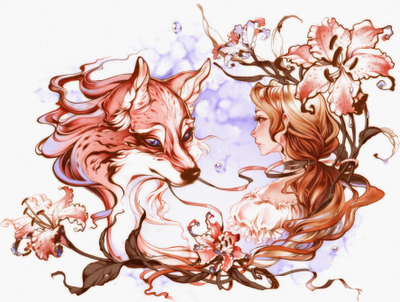 pain is a forest we all get lost inbetween the branches hope can be so hard to seeand in the darkness we've all got questionswe're all just trying tomake sense out of sufferingaudrey assad, "carry me"
pain is a forest we all get lost inbetween the branches hope can be so hard to seeand in the darkness we've all got questionswe're all just trying tomake sense out of sufferingaudrey assad, "carry me"It may be a bit quiet around here for the next week or so, as I am soon headed out of town. The Penslayer, of course, will be coming with me wherever I go, but whether or not I will have time or energy to conjure posts that may remotely interest you the future has yet to reveal. So I offer the following from Plenilune. Indubitably it is subject to change and alteration, and as yet is only a rough first draft. But in the hopes that you will enjoy it I offer it up to your inquisitive eyes.
* * * * *
The fox’s voice was high and mocking and cut like a knife. “You know that at Plenilune I am at my strongest. You were a fool—a fool—” the word came out spittingly “—to try your hand at the height of my power! You set your hand once to my thigh and broke me. I guard it better now.”Margaret leaned around the corner but the lintel of the stairway blocked her view. She hid again, low in the dark corner of the wall, not knowing if she ought to come out—which she thought would be idiocy—or to stay where she was and listen. She could hear Rupert pacing; his heavy tread crossed the width of the wine-cellar, measured and awful, and she knew he was furious beyond all bounds of fury. The fox probably knew it, too, but he was in a reckless, blazing mood and would not be quenched. “And Rhea?” asked the fox. “How is she? Black-eyed and frothing at the mouth? I’d keep that chit on a leash if I were you—you’re so damned good at making them. Her mistaken sense of loyalty might upset everything for you. It would have if she had succeeded. Lucky for you, eh?”Rupert growled, “I wouldn’t talk about a woman that way if I were you.”“Says the man who bites them!” the fox barked back viciously.There was a hissing noise and a thump. The fox gave an abbreviated squeal from the other side of the cellar. Margaret started up in horror and only just held herself back in time. “Ah!” The fox groaned. “That’s right, kick a fellow while he’s down! That’s sporting of you.”“Do you know your fault?” retorted Rupert. His voice was growing farther away and Margaret could hear a scamper of paws as the fox attempted to dodge him. He was not quick enough: there came another thump and squeal. She clapped a hand over her mouth to keep from sobbing. “Do you? You always were a prattling fool. You talk! And by my Lord Adam I am sick of your talking! I will break your jaw to quiet you!”It sounded as if he had succeeded. There was a crack, a blur of shadow against the stairs, and the fox let out a single choked cry of agony. There was another blow—a crate went over. “Where is your mockery now, red worm?”Another blow.Oh God, oh God, please make him stop!“If I cannot kill you, I will yet take you past the brink of desire for it!” Thump! thump! thump! He was hammering the little thing. Margaret’s stomach heaved. “You would wrestle with angels?” Thump! crack! crash! “Guard against temporal blows, half-wit!” There was a pause, a panting breath, a low canine moan. “Well, physician? Can you heal yourself?”For a long time the fox could not answer. With a silent shrieking that nearly tore her apart Margaret begged him to answer, to be able to say something. Oh God, oh God, oh God where areyou!A rattling gasp—half a laugh choked off by pain. “Give me a moment. I’ll…conjure…bit of bandage…”“Shuh!” replied Rupert scornfully. There was a flicker of shadow on the stair again and Margaret was suddenly afraid he was coming back, but it seemed he had only bent over, or stood up. “Lie there awhile in the ruin of your own making. You know me for a patient man, but I will hold grudges until hell frosts and my patience is not everlasting. And between the throbs of your headache mind this: I will brew a drink of death for you, no matter how hard you struggle against the chalice.”“You would…miss me if you did,” said the fox with a touch of his old languid humour.The shadow wavered. “As soon miss a thorn in my foot.”He was coming back. Nearly tripping over her skirts Margaret retreated into the darkness, huddled down into as small and black a shape as possible. Her stomach was heaving and twisting and trying desperately to squeeze up through her hands, but she did not dare let it. She did not dare breathe. The lamplight broke up into a man’s figure and Rupert emerged from the head of the stairwell, bent a little because he was still furious, his fists clenched at his sides. She was horribly afraid that his uncanny sensing would find her but he seemed too distracted to take stock of the dark chamber. He went on at once, melting into the darkness; she listened to the rattle of his footsteps up the stone stair and heard, with a sickening sense of relief, the door at the top crash shut.With a hiccupping gag she lurched to her feet, caught her skirt under her shoe and stumbled, sobbing, reeling against the wall. “Oh God, oh fox—” Half falling she made it to the head of the stair and ran down, blinking through a blur of tears and a blur of nausea. “Fox!” she called. “Oh, fox! I’m here!”There was a bit of white movement behind an overturned crate. She ran toward it; blindly she hauled wine-crates aside, shedding broken hunks of bottles and spraying wine about the floor. “Oh—oh dear God—no,” choked the fox when he stared up through black-rimmed eyes to see her. “Go away. Rupert will look for you—”“You idiot!” she cried, kneeling in the wreckage of wood and wine and pulling the battered head into her lap. She was sobbing so hard that her words came out in a broken rush. “You idiot! You stupid—st-stupid idiot! How could you have done this? You’re all I have! Are you broken? Oh God, you’re bleeding!” He was trying desperately to worm out of her hold and she was desperately trying to hold him. He kept gasping out that she needed to go and she, in full hysteria, kept crying at him to hold still and to be quiet and to lie quietly and how couldhe have provoked Rupert so horribly? At last he seemed to decide that the only way to calm her and keep her crying from bringing Rupert back down on them was to oblige her by lying, like a baby, on his back in the cradle of her arms. His face was drawn in agony, all his little teeth showing through a fixed snarl of pain, but he kept still and after awhile Margaret could look at his busted brow and bleeding gums without feeling heaves. “You idiot,” she hiccupped. “Oh, I hate you! Is anything broken?”“I always make mistakes with Rupert,” he replied in a voice of shadow. “I always—ah!—I always lose my mind… A few ribs, maybe. It doesn’t matter. I can’t see.” A drop of blood ran into his right eye and he shuddered at the sting of it, squinting to get it out.Manoeuvring him carefully Margaret wrenched at the lace collar of her nightgown and tore off a heavy piece. “Oh!—ah!” he protested as she sponged at his eye. “Wait, you need—grr!” His black lips curled off his teeth as she bound the bloodied strip around his head. A stain of red continued to spread across it—lace was not meant to soak up blood—but it kept the blood out of his eyes. “Please lie still.” She put her arms around him and wormed her way over to his pile of blankets and propped herself against the wall. He was rather larger than she had expected; his body was as long as a beagle’s and his limbs, slender and lengthy, did not seem to have any comfortable place to be put. With extreme delicacy he curled his back legs in and turned his tail up over the white flash of his belly; he did not seem quite able to move his forelegs: they hung down his length in a listless fashion, twitching now and then with pain. She managed to keep one arm under his hindquarters and one arm under his head and shoulders and let his body rest on her narrow lap. She shifted him a little closer, carefully, trying to get him comfortable.“You really oughtn’t—it isn’t—” He kept trying to speak but every time he opened his mouth a trickle of blood leaked out. “You’re a fine one to tell me oughtn’t and isn’t,” she replied cuttingly. She found she was not quite done crying. A tear dashed onto his fur and hung there, a bead of diamond-blaze against the stained darkness of his coat. “Now please lie q-quietly.”He turned his head against her forearm and stared silently out through a swollen slit of eye. He looked mournful and pensive—it seemed too much to hope for that he could be penitent—but he did not look angry anymore. The fight seemed to have gone out of him. She sat on the uneven bedding with his long weight in her arms; she wanted to rock him, gently, because that seemed natural. He was big and soft and warm and in pain, and it was all she could do to keep from moving him gently back and forth in a rhythmic pattern to try to soothe him. If she did she was sure it would hurt him; and anyway, if it did not make his bones grind and his torn muscles scream, it would hurt his pride. He looked a little hurt now.“H-h—” He licked his bloodied teeth. “How long are…are you staying?” he asked after a long quiet.Her arms were falling asleep and one foot was already past hope, but she made no move.He turned his head quickly, staring up at her out of one barely serviceable eye. “You can’t stay here all night. I forbid it.”“I can, and I will,” she snapped. He tried moving, but to no avail. The long space in stillness had cast his limbs in iron. “I can’t have you holding me all night like a baby. You must go. By the twelve houses, woman, I’m not accustomed to not getting my way!”“Pity for you!”“Margaret!—ah!”He choked off in mingled fury and pain and stared woundedly up at her. It was rather awful how pointed his glare could be even when it was coming out of only one eye. But he was right: she could not hold him that way all night long. She gingerly picked him off her lap, her limbs screaming in protest, and carefully laid him down on the bedding. She found a bit of blanket and put it over him, found another bit of blanket and wrapped herself up in it, and tried to get comfortable on the uneven pile beside him. It was unbelievable how painful a bit of rolled-up blanket could be: a length was cutting into her hip and no amount of shifting would right it. The fox tried to move to his feet, got tangled in his own blanket, seemed to swim against a wave of nausea, and crashed down again, panting, defeated. He gave no more protest. He lay with his head on his forelegs, eyes shut tight against the throbbing, his little sides heaving under the blanket. “May I get you some water?” asked Margaret, feeling helpless.He shook his head.Without thinking she reached out and began stroking his head; the fur was smooth and warm; the long ears pulsed a little with blood as she drew them gently through her fingers. He stiffened a little and moved his mouth as if to say something, but gave it up. His brows relaxed. His ears bent easily under the passing of her hand. His breathing was still laboured, but the lines of his body seemed to have given in to the dark pressure of exhaustion. If only he would go to sleep, she thought: at least then he would be free of the pain.A little brokenly, a little shyly, she recalled Lady Kinloss’ lullaby. It had been a long time since she had seen the golden-shell woman, alone in the dark which was her only friend, vainly trying to sing her baby to sleep. Her own mother seemed petty now, like the minor annoyance of a small lap-dog after one has met the unfettered fury of a stallion. Her hand rose and fell over the fox’s lean skull. Was there no peace anywhere? Was there no comfort or goodness or justice? Must they all be crushed, she under her mother’s jibes and Rupert’s steady pressure, the fox by blow, Lady Kinloss by neglect? How many souls cried out like the bare rosebushes of Marenové? How many…
Sleep, sleep, my baby.
The fox’s right ear twitched; her hand rose and fell over it, bringing the faint white hairs to light.
Sleep, sleep, my baby.And when you wakeI’ll give you a little black ponyWith a coat of nightAnd eyes of dragon-fire.
Sleep, sleep, my baby.Sleep, sleep, my baby…
She sang it twice, hoping there was not more that she had forgot or did not know, but the fox did not seem to mind. His breathing slowly evened and her eyesight slowly blurred. She did not remember dropping off to sleep. Her hand grew heavier and slower and his breathing grew softer and quieter. Confused dreaming images of picking the fox up and running away played in Margaret’s mind so that she thought she was doing so until she lost the dreams in one high wave of sleep that bore her off beyond imagination.
Published on May 14, 2012 15:57
May 8, 2012
"You Are A Sartorial Masterpiece"
So, this has less to do with clothing and more to do with graphics, and probably rather less to do with graphics than it has to do with the fact that I barely slept at all last night. I do apologize if my sleeplessness is foisting upon an unsuspecting blogosphere a rough collection of Plenilune graphics. Otherwise, I hope you enjoy them. As usual, I have very little artistic talent myself: none of these various and originally lovely photos belong to me. I merely borrow. Politely. Also, I cannot look at the last one without bursting into laughter. Enjoy! Enjoy the rarely-indulged graphic monster within me.













Published on May 08, 2012 13:14
May 6, 2012
Valedictus: a Letter
 Ere the Sad Gods That Made Your Gods, you may remember, was a piece of historical back-story that I did not intend to write for Plenilune, but ended up writing anyway. Due to I am not sure what, I have been suffering from exhaustion lately because I have had the most dashed trouble sleeping. A night or so ago I had made up my mind to turn in rather earlier than usual in order to catch up on that much-needed sleep (one notices that sleep is always referred to as "much-needed"). My muse, or some dark and secret bottom corner of my soul which seeks out only the worst for me, gave me, instead of firelit fancies and warm dreams, yet another piece of back-story for Plenilune. Rather than go to bed, I had to sit at the computer and write it. I may go blind or die from exhaustion (I've always been melodramatic), but I will do it for the good of those people who owe their existence solely to my imagination. There's a moral somewhere in that...
Ere the Sad Gods That Made Your Gods, you may remember, was a piece of historical back-story that I did not intend to write for Plenilune, but ended up writing anyway. Due to I am not sure what, I have been suffering from exhaustion lately because I have had the most dashed trouble sleeping. A night or so ago I had made up my mind to turn in rather earlier than usual in order to catch up on that much-needed sleep (one notices that sleep is always referred to as "much-needed"). My muse, or some dark and secret bottom corner of my soul which seeks out only the worst for me, gave me, instead of firelit fancies and warm dreams, yet another piece of back-story for Plenilune. Rather than go to bed, I had to sit at the computer and write it. I may go blind or die from exhaustion (I've always been melodramatic), but I will do it for the good of those people who owe their existence solely to my imagination. There's a moral somewhere in that...* * * * *
Nones of the Harvest Moon, 689
My dear mother,
It would be breaking faith with myself to deny that it is my current location which brought you so sharply into my mind again. Like my shadow you are always about me; as in the afternoon I find you falling before me today, clearly etched on my childish memory. Yet…a mere phantom—and that hurts worst of all. I am a stone’s throw west along the coast from the old homestead, and to make a spirit of a different sort from this long shadow on my memory I’ve sat down with pen and parchment and blown spume to write. To you, of all people, though fancy tells me no mortal post-horse gallops where you walk. There is a hush over the camp tonight. You know, that hush that falls before the “red dawn,” as the poets call it. I wonder—! Did that old scapegrace Homer ever wait out a night after which he had to fight? I fancy not. He wouldn’t write about it in such gory splendour as he did. His pages would be blank. Stark blank, and filled with the hollow rush of the sea which seems to mock my ears with the whisper of Memento Mori. Which, if that be so, I’ll put this letter in your hand by noon tomorrow, no doubt… I wouldn’t worry about me, though, mother. We’re old hands at this game; I suspect half of us are quiet out of respect for mortality, and the other half out of respect for the respectful. No green hands among my rangers. There was a bit of a tussle between Mark Roy’s two cubs, as one came away to help me and the other wanted to but couldn’t. I hated leaving the fellow, but I’ll be damned if I let a child just that bloodless in on a serious business like this. Spencer and I will take him boar-hunting with me this Ivy when the season opens and get his hands a bit red. In a year or two, after that kind of work, he will have some raw experience to go with his raw keenness. The business is pirating, mother—pirates! No easy task for us but something worthy of that blind bard: no hard fell turf for our horses—or gorse bushes to catch a fall—but shifty work here on the edge of things between water and wood. The night has become low and Mars is casting about madly in the clouds to the south: Spencer says mucky weather come morning, if the wind holds. Which it will. I feel that steel coldness in my bones and that heady lightness in my blood as it were too much wine and I know the wind will hold. I wish you could see him slashing: through my open tent-flap I can see the lightning splintering up behind the headlands of clouds, illuming the heavenly pillars, so that for a second everything is black and purple and stark white—then nothing but darkness and, after a while, the soft murmur beneath the steady beat of waves of rolling thunder. Yes, Mars is splitting open the liver of the sky and I read a great and terrible fortune in the lightning. I wish you could see it, mother, selfishly and petulantly I wish it: you see better light-shows than I, now.Oh, mother, I feel so old…! I wonder if death does that to you. Spencer found a grey hair the other day—on me, that is. It brought me up rather short. I know grey happens early to some, but in one of those horribly uncanny, clairvoyant moments I looked at it and thought, “How like the colour of Widowmaker it is.” And that made me shudder a little. But then Spencer was rather mortified and I had to put away my personal feelings to console him. Maybe it is merely something in the air—the salt or the thunder, or the sound of the sea, of the soundlessness of my men… Makes me feel positively hoary with age. I begin to understand why father looked the way he did…Give him my best, by the way—.The storm-wind has hit us, which accounts for the slash and splatter of ink. It came shrieking along the coastline from seaward and played merry havoc with the tents. I don’t think anyone got their covers blown from over their heads—though I don’t know if any of us really sleep on the eve of battle—but the horses are disconsolate and my handwriting is somewhat distracted by always having to chase this sheet of paper about the table. There. A knife through the two top corners will do, though it has passed a dark shadow over Spencer’s face to see me using the table so badly. But it’s for you, mother. And it isn’t as if the table hasn’t seen worse.I want you to know that by this time tomorrow—assuming itdoesn’t happen to me—I’ll be up at the old homestead testing the strength of familial relationships. By the twelve houses, I haven’t been up there in years. Great-Uncle may very well mistake my horse-boy for me, but I think the eyes will give me away. I have your eyes. All the same, what with…everything…it really has been quite a few Christmases since I stepped across that threshold and one does wonder if absence breeds discontent among the older generation. Neglect, I think they call it. Of course you know I don’t mean neglect, and I did write back very prettily to his wife around High Hawthorn—some ghastly excuse to squeeze out of maying with them just when Rubico needed desperate care—but I hope they understand that a great deal fell on our shoulders when father passed on. Still, I’d as lief face pirates with only my pet knife in my teeth as go up against irate relations…Speaking of the weight of the world, I don’t mean to count my chickens before they have hatched, but in the amiable way of things several men have hinted at the election. None of them is very closed about it; their minds seem to be rather made up, and, what with Mars playing a triumphal entry in the background, I think it very likely that by the next time my great-aunt sends a maying invitation, I may very well be Overlord. I dare swear Spencer will find another grey hair or two because of it, so you needn’t worry about me getting too full of myself. I filled myself up to the brim years ago. Don’t worry about tomorrow, mother, and it please you. If worst comes to worst, I’ve always got that one card to play, that one ruse with which to cheat death. I once had a horrible convulsion of conscience and sat up late with Spencer, head in my hands, wondering why I kept it and didn’t save other lives from being cut short. But in the end I realized that I couldn’t use it, not like that. It would be breaking faith with them if I did. It would be making them break faith with themselves. I’m sure you understand. That is the one thing which fortifies me against the grey hairs: that, no matter the difficulty, no matter how hard I press the heels of my hands against my temples, Spencer and I can usually come to an ethical decision. My only fear is that when I get really angry I see red, and sometimes even the coldness of good breeding isn’t enough to check me. On very rare occasions I really do fear that one day someone will push my hand just too far, and I might do something awful. No one ever has, and so I haven’t either, but by all the improbable stars what Furies lurk in the serenity of men, what tinder we are made of which Heaven or Hell could strike a light to…The tempest rages and all my curious, irrelevant fears come out to dance and play in figure-ink on innocent vellum. I apologize, my dear. What thin, airy stuff we are made of! that we cast in iron and leather just to hold together, because deep inside we know what dreams we are made of and how fragile we really are. There will be a battle tomorrow, with horses and punts in the mucky rain and backwater inlets and a fine red tide killing the fisherman’s catch. I am rather cold tonight, mother. Rupert has called for me and I must go, flitting in the rainy black about the camp like a moth looking for a light. I’ll roll into my bed long enough to get comfortable before it is time to roll out and harness up. I salute you, mother. Nay, I love you. I love you.
—D.
Published on May 06, 2012 19:27
May 3, 2012
Beautiful People - Rosemary de la Mare
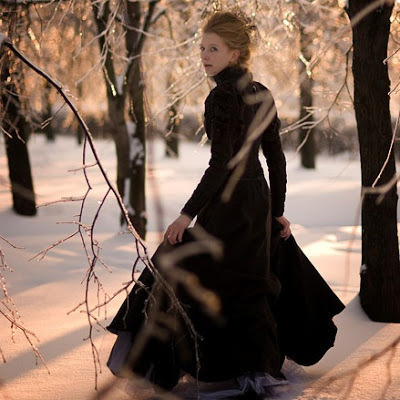 Thou wast not born for death, immortal Bird!
Thou wast not born for death, immortal Bird! No hungry generations tread thee down;
The voice I hear this passing night was heard
In ancient days by emperor and clown:
Perhaps the self-same song that found a path
Through the sad heart of Ruth, when, sick for home,
She stood in tears amid the alien corn;
The same that oft-times hath
Charm'd magic casements, opening on the foam
Of perilous seas, in faery lands forlorn. Ode to a Nightingale, Keats
I had already decided that I would do at least one other Beautiful People post this month. I had another unexpected character for Plenilune show up and, since The Penslayer has had a lack of light-hearted posts recently, I thought I might as well get to know the character better here. She is not of magnificent importance to the plot, but as we all know from "It's a Wonderful Life," even one person's existence can make a world of difference. This character is a generation back from when Plenilune takes place; she is the now-deceased matron of Marenove, which makes her both important and irrelevant. But I found her interesting all the same.
Rosemary de la Mare
1. What is her full name?
Lady Rosemary Laronne Incharness de la Mare—that is to say, her title, her given name, her maiden name, her family home, and her married name and residence of state. For brevity’s sake we will just call her “Rosemary” from here on.
2. Does she think inside herself more than talk out loud to her friends? (more importantly, does she actually have friends?)
Originally Rosemary was a very quiet person, strong-minded and forceful when she spoke, but typically one to keep quiet unless she had something of very importance to say. After her illness she could talk almost constantly, to herself or anyone else; her voice, though not monotone, could maintain a steady low murmur that was very pleasant to listen to, whether she happened to be chattering to you or to herself.
3. Is there something she is afraid of?
Being left alone, a fear aggravated by the onset of night. During the day, like a child, she is content to patter about and entertain herself, and will be for hours on end if she pleases. But on rare occasions—again, especially in the evening—she will run about the house until she has found her husband Richard, cast herself into his arms and beg him not to leave her alone. While no one in her family has given her cause to fear this, it is an irrational fear she cannot shake.
4. How old is she?
At the time of her death she was only forty-one years old.
5. What does her handwriting look like?
Rosemary’s long fingers were always deft with the quill. Handwriting, a course all high-born children must take, was a difficult subject for her but she managed to conquer it. She wrote in high, italicized cursive script, very distinctive and very distinguished. After her illness she was known to scribble patiently at seeming nonsense, though her eldest child remains convinced that she was making up poems in the Golden Tongue.
6. Does she have any siblings? How many? Where does she fit in?
Rosemary Laronne was, for all intents and purposes, an only child. Her mother had several miscarriages and three other children who died young. Only Rosemary survived, though she did not, in the end, outlive her own parents.
7. What type of laugh does she have?
To put it poetically, Rosemary’s laugh was like a cascade of water or a thrust singing from the top of the elm tree on a blustery autumn day. This was a feature she managed to keep.
8. Who is her best friend?
This is a difficult answer to explain. While Rosemary could always be friendly, she was not always ready to be a friend, and so had almost none outside her family. Inside one’s family one isn’t supposed to have favourites, but it is a little hard to hide the fact that, after her illness, she was most pleased to be in her eldest child’s company, who was really a playmate for her. Her husband was her only real friend.
9. Favourite kind of weather?
Rosemary preferred blustery, sunny days when she could keep out of doors for hours on end and come back in feeling as if all her veins and bones had been blown clean by the wind.
10. What kind of music does she like?
Her favourite music was birdsong, and she was a great imitator of it.
11. Does she like to go outside?
I fear I have already answered this question. Rosemary could be found outside even on damp days, though when it got really wet she would perch indoors by the fire.
12. Is she naturally curious?
Rosemary was the very soul of curiosity. She was a great student of astrology and natural philosophy, a slow but ardent learner of language, and would always be on hand when the cook is making something new to ask, “What is that?” and “Why does it do what it does?”
13. Right, or left handed?
Rosemary is right-handed.
14. Where is she from?
In the interest of not repeating myself too often, Rosemary Laronne comes from Incharness, a sea-side demesne of the Mares.
15. What kinds of things get on her nerves?
Damp cold, really wet days, thunder, headaches, scratchy linen, harsh noises, dogs, and spoons.
16. Is she independent, or needs others to help out?
I would say Rosemary was pretty fairly normal as regards dependence and independence. Naturally, due to her illness, she had lost some capacity to understand some things, but other than really difficult things like getting dressed or making a fire (which, as a lady, she always had help with), she retained much of her natural independence.
17. What are her quirks?
Well, apart from the obvious one, she had a great love of cinnamon and liked it particularly on pears, she had been known to slide down the banister of the Marenové grand staircase (she was put up to it by her sons), and she had a seemingly innate dislike of give direct answers—a trait her eldest son inherited.
18. Has she ever been in love?
While her husband Richard was some years her senior, the two of them loved each other very much. During the first near-dozen years of their marriage her liveliness, cunning, and loyalty were a very good thing for him; after her illness these traits were not diminished, though she was considerably less able to help him in politics.
19. What is her comfort food?
Pears with cinnamon in one of the three Pheasant Dishes, which are family heirlooms.
20. Does she play a musical instrument? If so, what?
Rosemary played both the harpsichord and the flute, both of them remarkably well; also, having stood outside in the garden in the same spot for three hours listening to a nightingale, she developed an astonishingly good singing voice and a great ear for a tune.
21. What colour are her eyes? Hair?
Her eyes were a very pale blue—a characteristic that overrode the dominant brown gene and gave both her sons pale blue eyes as well; her hair was thick and honey-coloured, a trait which she did not pass on.
22. What is her favourite place to be?
Up in the elm tree, on very fine days, or curled up on an ottoman at her husband’s feet, her head and arms in his lap, watching the fire.
23. What kind of home does she live in?
Marenové is a pretty solidly-built house, its main body very nearly square with an adjacent kitchen wind and a newer solarium on the south side. On the north side stands a tower, an addition in the middle years of the house’s life, which is now used as Rupert’s study. The grounds are pasturage, paddock, and half-wild garden, with the forestry of Glassfell encroaching on the bee-skeps in the back.
24. What does she like to wear?
What Rosemary liked to wear depended largely on the weather. Usually a simple yellow frock would do, but on some occasions she got it into her head to be really fancy and would truck about the garden in her scarlet and miniver like some kind of displaced bird of paradise. In bad weather she kept indoors and went about in a surcoat of fawnskin and ermine.
25. What do your other characters have to say about her?
“But she was not always harmless. On very bad days, which were very rare, she would fly into a passion and think she was a hawk, and come at me and my brother so that our menservants would have to rush us away and my father would have to shut my mother up until the spell passed. I always came to her afterward and found her crying, and would do my best to make her sing mocking-jay songs again, which always cheered her. Poor thing. And she was so beautiful.”
26. What is her back-story and how does it affect her now?
Rosemary grew up in Incharness in the south of the Mares overlooking the sea. It is a very different place from manor-style Marenové, which lies inland in Seescardale and whose biggest body of water is a major lake. She married well—into the family typically chosen to be Overlords—and did both her family and her husband proud at home and abroad. Her beauty was a little austere for the preference of Plenilune, but it could not be denied that she was breath-taking. Her manner, if not always winsome, was always gently effusive, and she was always considered a leading lady among the Honours’ Elite.
Unfortunately, when her eldest child was ten years old, she contracted brain fever and never quite recovered. She retained her beauty and, for the most part, her sweet nature, but for her few remaining years was convinced that she was a bird. She was largely harmless unless circumstances conspired to agitate her madness, and though she was no longer a member of Society was still treasured by her family as a sweet, melancholy creature.
27. How does she show love?
She loved giving hugs. She would gather her children under her surcoat, bend down close with an arm about each, and press their cheeks to hers and sing a snatch of song she had made, just for them, to tell them how much she loved them.
28. Does she prefer the country, or the city?
She much prefers country life. She does not mind going in to the towns, but she feels a little cramped by and does not really like the noise of them.
29. Does she have a sweet tooth?
Incorrigibly.
30. What colours are in her bedroom?
Her bedroom was in the southeast corner of the house and overlooked the front park, lower garden, and solarium. Her chamber was a combination bed- and sitting-room with a peacock-colour palette and a predominance of carnelian and green; furniture was done in maple, chair-rail panelling and ceiling in oak, all stained.
31. Favourite kind of tea?
Her favourite tea was “red coffee,” a red tea made in a highly concentrated dose and served with a vanilla-milk mixture; she would often take it with coffee cake.
"Thou art a naughty boy, still I love thee, son.""Th'art a clever woman, still I love thee, mother."Memoirs of Plenilune
Published on May 03, 2012 09:06
May 2, 2012
The Casual Madness, i.e. Snippets
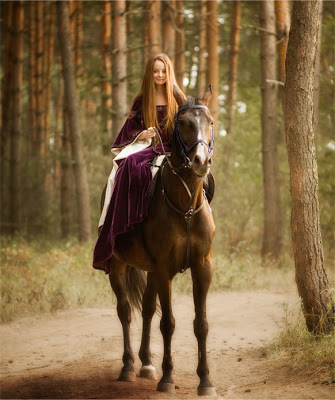 It's time for May Snippets (according to the Book of the Chronicles of the Katiebugs of The Whisperings of the Pen), but first I am pleased to note that Elizabeth Rose on Living On Literary Lane very charitably invited me over for an author interview. You can read it here - it was lots of fun! Again, thank you, Elizabeth Rose, for inviting me in for tea and talk.
It's time for May Snippets (according to the Book of the Chronicles of the Katiebugs of The Whisperings of the Pen), but first I am pleased to note that Elizabeth Rose on Living On Literary Lane very charitably invited me over for an author interview. You can read it here - it was lots of fun! Again, thank you, Elizabeth Rose, for inviting me in for tea and talk.Plenilune writing has picked up a bit since March. I spent March reading a lot of non-fiction, which, when taken as a single diet, considerably cramps my creativity. So I spent April rereading several old favourite fictions and that helped a good deal. I have been writing - not exactly chronologically, but I have been writing.
May Snip-Whippets
“This is a rum turn of luck, if I dare swear before you on it. We had hoped—”“We had,” laughed Centurion. “Some of us still do.”
Plenilune People rushed to her side. Aikin, who was closest, was there first, with an experienced but very bloodied hand under her elbow to hold her until she found her balance. The world swam a moment with brown and tawny and pale light until it became a November wood again, and she looked down and over to see the huge body of the boar scrabbling and heaving, still alive, but only barely, with her make-shift weapon and Aikin Ironside’s spear in its chest. “Someone kill it, please,” a man called, half-laughing in an uncertain, shaky way. “She’s all right, only tumbled a bit.”
Plenilune
There was a soft cracking sound behind her; glancing surreptitiously over her shoulder, Margaret found [FitzDraco] had drawn his lips in a wide thin line which seemed to be his best pantomime of a smile.
Plenilune
“By the twelve houses!” the fox cried, getting impulsively to his feet. “You met Bloodburn? Would that I had been there. I am sorry you met him alone.”
Plenilune
“I am sorry,” Margaret said again, quite subdued and not a little awkward, and rather wishing, despite the madness, that she could have met the woman. The irrevocable madness of the mother seemed to explain, a little, the casual madness of the son.
Plenilune
Her breath caught in her throat as she stared down at the picture. When she saw that it was a map she had expected it to be a little rough, with open edges as if there were places the explorer had not gone. But no, the map was in pristine condition, fraught with so much detail that she was not able to take it all in. There was Marenové and the Marius Hill—and Lookinglass a kind of embattled star to the east on the edge of a long dragon-back of hills. She saw Darkling and Orzelon-gang, the steppes, the narrow, misshapen Honour of Thrasymene; but all this passed by her in a kind of fitful blur, like a fly that is angrily swatted away. What she did see, very clearly, was the small, intricate, almost life-like figure of a dragon hard by the east side of the Marius Hills, pointing west into the lift of the fells as if to mark a path. With her heart uncomfortably where her throat should be she lifted the corner of the page and slid her hand underneath it.“God forgive me,” she murmured, and tore the page from the book.
Plenilune
But the joke rang hollow with Margaret. With renewed vigour the inexplicable pangs in her chest returned, twisting upward into her brain images of the fells and the snow-hushed pine-woods, the glimpses of deep black lakes round the spurs of the hills: she saw the mews full of hawks and the kennels full of hounds: she heard the echo of proud Blue-bottle Glass declaring his power to the world. No, no one would want Rupert. Not even Plenilune.And her heart ached because of that.Plenilune
Her movements were fluid for one so old, her voice blue-veined and thin, but certain. “Thee marks it, young man, and ‘twas a death-knell in thy soul for omen! Thee marks the star Frezen blinked out, like a snuffer put on thy hope! Let not Hell hope! Let not Hell hope! Aye! aye!” she laughed with both hands clutching the air before her, as if shaking something in their faces. “ ‘Tis an omen! ‘Tis an omen! It may yet go ill with the evil lords! He is the God not of the dead but of the living! Aye, thy omening star goes out and he sits in Heaven and laughs at thee! Uncovered are thy wickednesses! Unhappy are thy auguries! Ill will it go with thee! Treble confusion on thee! The death of thy enemies is wormwood and gall in thy bowels!”Plenilune
Published on May 02, 2012 07:49
April 30, 2012
Beautiful People - Aikaterine
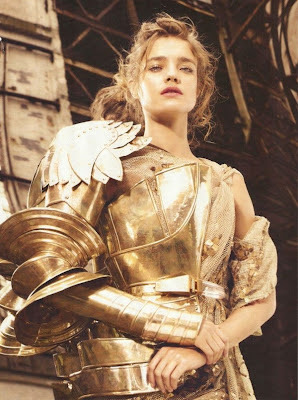 "I could not get on without her - or Tabby.
"I could not get on without her - or Tabby. I dare say they are my two hands together."Plenilune, Skander Rime
I had a deuce of a time trying to pick a character to do Beautiful People for this time. I feel I've rather done Margaret in; since she is the main character of Plenilune, naturally she should get the lion's share of the Beautiful People posts. All the same, it gets dull using the same character over and over, so I decided to dig out the incomparable, invisible Aikaterine instead. While Aikaterine is only a maidservant, and a young one at that, she plays a vital role in story: there may be a front seat and a back seat and a window in between, but I dare say those in the back seat wouldn't get very far without the driver in the front. So Aikaterine, while only a maid, is a very important figure in the workings of life in Lookinglass.
Aikaterine
1. What is her favourite type of shoe?
A calfskin boot of fawn-colour brown, turned over at the top and with a two-inch heel. They are well-padded so as to be comfortable, as Aikaterine walks miles from the beginning of the day to the end of it, pretty yet demure, and the heel gives her a mark of class without attempting to be pretentious, and also a firm grip on a stirrup.
2. Does she journal?
Aikaterine’s life is too busy to journal; even if she did have the time it would be dull reading, for her days are fairly similar, and as she is a key figure in her master’s life she would consider it a breach of faith to write about her master’s business.
3. What is her favourite animal?
Anything that does not shed. She is a pretty good hand with any animal—be it a pet or a meal—but she is not ardently fond of them. She does have a little chestnut palfrey which Skander Rime gave her especially, but it is not part of her duties to care for it.
4. What does her average day look like?
Her morning begins promptly with a bath and cup of tea, after which she goes into Skander Rime’s study to clear up from the night before. An hour before Skander rises she sets the kettle on and begins mixing the oatmeal which forms the main dish of his breakfast. Like clockwork she adds an egg (over easy) and seasonal fruit to the tea and oatmeal and then goes up with the breakfast to wake her master. While he is eating she goes down and has her own breakfast (the "blue-jay man" runs the bath and lays out Skander’s clothing), and then sets Skander’s coffee on before taking it through into the study. Unless Skander is very busy she usually spends the rest of the morning tidying or cleaning his chambers and overseeing the list for supper. At eleven promptly she makes up Skander’s lunch and takes it up to him at noon sharp. If he means to go out she goes up to lay out boots, crop, and cloak while the blue-jay man tends to the horse. She has a little time in the afternoon for a sit-down and some reading, and afterwards spends time running over lists for Skander and writing off messages to friends, merchants, and those in fief to him. Her handwriting is, unfortunately for Skander, rather better than his. She makes Skander’s tea with unflagging punctuality and often takes her own with him while he gives her updates and bounces ideas off her between bites. Between tea and supper Aikaterine makes a tour of the whole house, including the grounds if the weather is fine, and then oversees supper and the preparation of the dining room. She takes her own supper in the servants’ hall and then goes up with the blue-jay man to make sure the study and bedchamber are ready for the evening. Her last act of the day is to pop in on the pantry and make sure there is fresh fruit for tomorrow morning.
5. Night owl or morning person? (Optional: What time does she usually wake up? Go to bed?)
Aikaterine wakes up every morning at five o’clock sharp and doesn’t lie down again until 9:30 in the evening. She is always on the go when she is awake, so as soon as she hits the pillow she is out like a light.
6. Does she have a sweet tooth?
She is passing fond of bread pudding, which she will eat as often as she can get it; her high metabolism and active life allow her this indulgence. Otherwise she is content with fruits and tends to have a very healthy diet.
7. What colours are in her bedroom?
It is almost embarrassing that Aikaterine’s room at Lookinglass is fancier than the room Margaret is put up in. But Skander is very fond of Aikaterine and has a habit of absent-mindedly lavishing her with this and that fine thing. Aikaterine has a room on the ground floor in the northeast section of the house near the Ilex Lawn; it has only one window overlooking the walk, but it is smoothly stuccoed and panelled in cherry with a fresco-work of wine-country on the far wall. She keeps a cherry four-poster and a matching set of drawers and an enormous, violently colourful rug on the hardwood floor which Skander Rime took as spoil from a war with the Carmarthen. The prints on the bedclothes and curtains are of heavy purple and beige, which draw out the more subtle hues in the carpet and make it a little less overpowering.
8. Can she cook?
“…But the meals were nicer, and as for the sweets, I won’t tell you how cheap and good they were, because it would only make your mouth water in vain.” Aikaterine is an excellent cook; Skander jokes a little that she uses witchcraft, but her food is generally so good that he seriously wonders from time to time if there isn’t something unnatural about it…
9. What is her favourite household chore?
Setting out her master’s riding things. Nothing looks so smart to her as to see the two polished boots standing side by side on the hearth rug with their spurs shining, the long leather crop lying longwise across the carved arms of his bog-oak chair, and the heavy, weather-stained folds of his leather doublet hung on the tear-drop corner of the chair’s back.
10. Favourite kind of tea?
When Aikaterine pulls out the tea-ball she most frequently fills it with a kind of black chai, which brews strong and is very invigorating. Its lingering scents are always appealing to anyone who catches them on her, too, which is an added advantage since it is Aikaterine’s goal to be both invisible and charming to those “upstairs.”
"Does Tabby not also go? I am my Lord's maid and I go with my Lord. Now stand aside, or I will knock you down!"Plenilune, Aikaterine
Published on April 30, 2012 11:30
April 28, 2012
Sun Horse, Moon Horse, Mostly Moon Horse
Great Scott, a post full of pictures. It would be pretty poor sport to do a Beautiful People post on horses, because as interesting and expressive as they can be, there just isn't enough back-story to plain, straight up horses. Horses like Bree, for instance, or Black Beauty, may have interesting tales to tell; but in general your typical dumb horse, be he as grand and triumphant a beast as possible, would make for a rummy interview. So rather than give you something like Beautiful People, I'll take you briefly through some of the major horses of Plenilune - because a Plenilune fellow is nothing without his horse. Think of it as a sort of dramatis personae, but with horses.
Note: Plenilune folk don't measure by "hands," they measure by "hedges." Most horses are at least a "hedge" high, usually more. "Hedges" are about five feet high; after a single "hedge" horses are measured in tenths. Example: a horse is "a hedge and one" high which is approximately five feet one inch. Anything below a "hedge" is counted backwardly: a horse standing at four feet eight inches is "a hedge mark two."
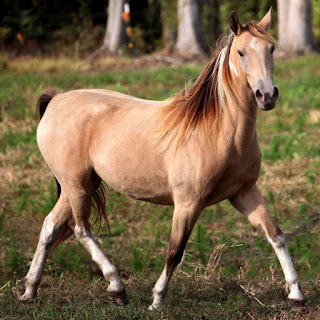
Witching Hour
An amber champagne courser stallion, owned by Rupert de la Mare and used as his primary mount. Witching Hour stands at a hedge and three, is currently a little over five years old, and he has a fairly temperate nature. While he has almost no "native" hill-pony blood in his veins he is extremely sure-footed and can show a pretty pair of heels when his master requires speed.
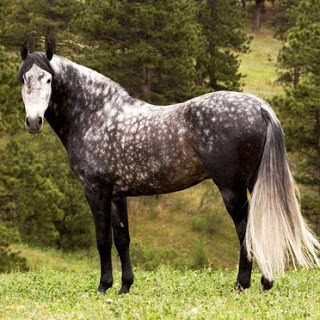
Hanging Tree
Another of Rupert de la Mare's horses, Hanging Tree is a dark dapple-grey palfrey mare of some seven years, well-set and good-tempered, standing at exactly one hedge. She has been trained as a lady's mount, for walks or hunting or Maying, and is the horse most used by Margaret.

Blue-bottle Glass
As Margaret stepped into the courtyard and to one side Skander’s courser, a big-boned blue dun with a mind of its own, was being brought out of its stall... As I have mentioned before, Skander has quite a pick of horses in his stables, but Blue-bottle Glass, intemperate and feisty as he is, is the gem of Skander's heart. Not only is he a beautiful show, he is powerful, responsive, and exquisitely trained. Though nearly ten years old, he gives his handlers plenty of fuss and usually gets his way by throwing his massive weight about as he pleases.

Altai-tek
Altai-tek is a pure-blooded Carmarthen horse, bred on the Plenilune steppes with thunder for feed and spice in his veins. He is owned by Mark Roy, king of Orzelon-gang, and was a gift from the sovereign's nomadic father-in-law. He is only five years old, really newly broken, but he rivals Witching Hour at a hedge and five for height and carries the elaborate trappings customary to Orzelon-gang horses with poise and style.
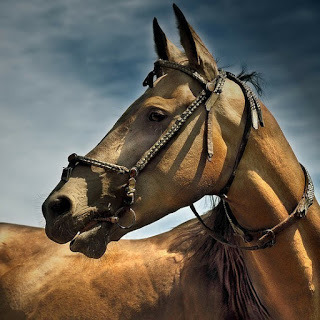
Boy
Like his master Lord FitzDraco, this dun-coloured gelding courser is not much to look at, but Boy is extremely sweet, unassuming, and unflaggingly loyal to his master. He is thirteen years old, stands at a hedge and two (which is just a little too short for FitzDraco), and, though he has no remarkable parentage, remains one of the unsung heroes of horse-kind. His ordinarily severe master coddles him like a dog and, like a dog, Boy devotes all his love and attention to FitzDraco.
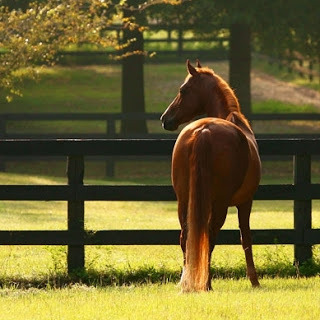
Chanticleer Down
Chanticleer Down, sired by Down Six (of a long and famous line of Downs), is a chestnut hedge-and-two courser stallion owned by the young lord Centurion of Darkling. Chanticleer Down is only four years old and quite untried, having never ventured very far from his home paddocks around Darkling-law. He is trained for combat, but as wars have been scarce in the past ten years the young buck hasn't had the chance to test his mettle.
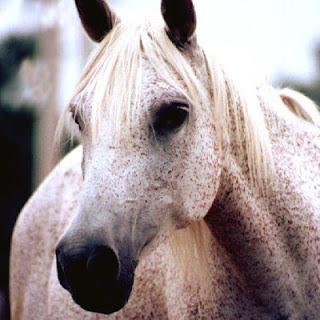
Vixen
As her name suggests, this flea-bitten mare has a powerful bad temper, as short as her neck is long, and she came out of the womb running. She is a little, sprightly thing, a hedge mark one in height, and her ten years of existence have not dulled the edge of her attitude. She is a Thrasymene horse, Woodbird Swan-neck's primary mount, and is not trained to do anything. She will do anything at all - fight, race, or hunt - if she feels like it, regardless of training. She is stuck inexorably in the terrible, rebellious teenage years, flaunts her precocious nature and natural beauty, has a wicked bite, and will put up with no one but Woodbird herself.
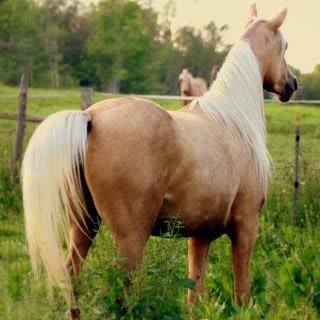
Chrysostom
Chrysostom is an old resident of Talus Perey, a manor of the Mares owned by Malbrey, a friend of Rupert de la Mare. Chrysostom is a palomino gelding of some sixteen years, a haggard but friendly individual, still rather handsome and very stately at a hedge and three. He is no longer used as a charger but still makes for a comfortable, leisurely ride about the manor or surrounding countryside.
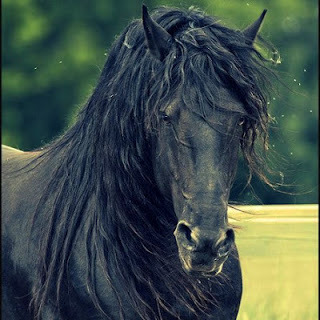
Benedictine
Benedictine's owner, Aikin Ironside, is a bit of a dark horse himself... This heavy-set black mare, just too light to be an official destrier, makes for an odd picture when juxtaposed with her tall, lean-built master. She stands at a hedge and nine and is looking forward to her sixth birthday. She is a placid, amiable girl; she and her master share an almost telepathic understanding of each other which makes her invaluable as a horse, and them both deadly as a unit in battle.
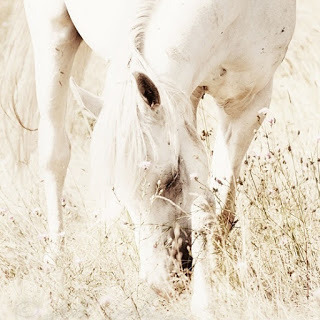
Pearl
Her name and visage are sweet, but Pearl is the rather jaded mare courser of the Lord of Hol. Her sire was Gold Bit, her dam Spoils of War; she is quick and light-boned, but strong, and stands at a hedge and two. She is eight years old and has already seen two violent brushes with neighbours. Her disposition is naturally quiet, but her treatment has inclined her to be skittish and wary.
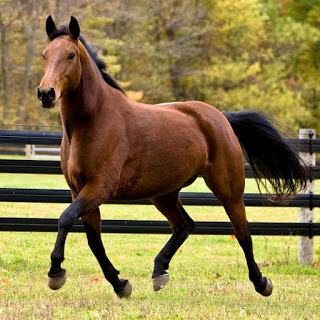
Fond Farewell
A bay courser three-year-old owned by Aikin Ironside's brother Brand. Fond Farewell was originally meant to be a racehorse, but he fell under Brand's eye and was quickly bought off the track. He is a leggy, skittish, but promising youngster, and will hopefully settle down into a formidable war-horse after his training.
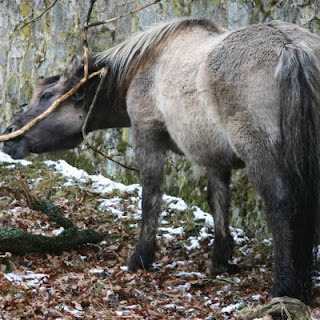
The Odd-Job Pony
The odd-job pony, which is entirely hill pony in breeding, is possibly twenty years old (everyone has lost track). It rattles about Marenove Manor doing this and that, hauling brush or carrying one of the household servants about the country lanes. The grizzled old thing stands at only a hedge mark four, which makes for awkward riding.
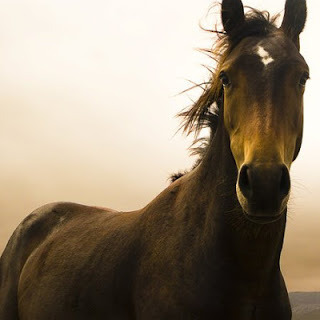
Rubico
Rubico is a tough seal-brown agouti war-horse, standing at a hedge and one high with a raw handsomeness and a no-nonsense personality. He is nine years old and has seen several full-blown conflicts in foreign parts. Since the death of his master Dammerung War-wolf he has gone into forced retirement which, since he is still in his prime, makes him irritable and snappish.
"It's a rummy long way to Thwitandrake... Anyone got a horse?"Plenilune
Note: Plenilune folk don't measure by "hands," they measure by "hedges." Most horses are at least a "hedge" high, usually more. "Hedges" are about five feet high; after a single "hedge" horses are measured in tenths. Example: a horse is "a hedge and one" high which is approximately five feet one inch. Anything below a "hedge" is counted backwardly: a horse standing at four feet eight inches is "a hedge mark two."

Witching Hour
An amber champagne courser stallion, owned by Rupert de la Mare and used as his primary mount. Witching Hour stands at a hedge and three, is currently a little over five years old, and he has a fairly temperate nature. While he has almost no "native" hill-pony blood in his veins he is extremely sure-footed and can show a pretty pair of heels when his master requires speed.

Hanging Tree
Another of Rupert de la Mare's horses, Hanging Tree is a dark dapple-grey palfrey mare of some seven years, well-set and good-tempered, standing at exactly one hedge. She has been trained as a lady's mount, for walks or hunting or Maying, and is the horse most used by Margaret.

Blue-bottle Glass
As Margaret stepped into the courtyard and to one side Skander’s courser, a big-boned blue dun with a mind of its own, was being brought out of its stall... As I have mentioned before, Skander has quite a pick of horses in his stables, but Blue-bottle Glass, intemperate and feisty as he is, is the gem of Skander's heart. Not only is he a beautiful show, he is powerful, responsive, and exquisitely trained. Though nearly ten years old, he gives his handlers plenty of fuss and usually gets his way by throwing his massive weight about as he pleases.

Altai-tek
Altai-tek is a pure-blooded Carmarthen horse, bred on the Plenilune steppes with thunder for feed and spice in his veins. He is owned by Mark Roy, king of Orzelon-gang, and was a gift from the sovereign's nomadic father-in-law. He is only five years old, really newly broken, but he rivals Witching Hour at a hedge and five for height and carries the elaborate trappings customary to Orzelon-gang horses with poise and style.

Boy
Like his master Lord FitzDraco, this dun-coloured gelding courser is not much to look at, but Boy is extremely sweet, unassuming, and unflaggingly loyal to his master. He is thirteen years old, stands at a hedge and two (which is just a little too short for FitzDraco), and, though he has no remarkable parentage, remains one of the unsung heroes of horse-kind. His ordinarily severe master coddles him like a dog and, like a dog, Boy devotes all his love and attention to FitzDraco.

Chanticleer Down
Chanticleer Down, sired by Down Six (of a long and famous line of Downs), is a chestnut hedge-and-two courser stallion owned by the young lord Centurion of Darkling. Chanticleer Down is only four years old and quite untried, having never ventured very far from his home paddocks around Darkling-law. He is trained for combat, but as wars have been scarce in the past ten years the young buck hasn't had the chance to test his mettle.

Vixen
As her name suggests, this flea-bitten mare has a powerful bad temper, as short as her neck is long, and she came out of the womb running. She is a little, sprightly thing, a hedge mark one in height, and her ten years of existence have not dulled the edge of her attitude. She is a Thrasymene horse, Woodbird Swan-neck's primary mount, and is not trained to do anything. She will do anything at all - fight, race, or hunt - if she feels like it, regardless of training. She is stuck inexorably in the terrible, rebellious teenage years, flaunts her precocious nature and natural beauty, has a wicked bite, and will put up with no one but Woodbird herself.

Chrysostom
Chrysostom is an old resident of Talus Perey, a manor of the Mares owned by Malbrey, a friend of Rupert de la Mare. Chrysostom is a palomino gelding of some sixteen years, a haggard but friendly individual, still rather handsome and very stately at a hedge and three. He is no longer used as a charger but still makes for a comfortable, leisurely ride about the manor or surrounding countryside.

Benedictine
Benedictine's owner, Aikin Ironside, is a bit of a dark horse himself... This heavy-set black mare, just too light to be an official destrier, makes for an odd picture when juxtaposed with her tall, lean-built master. She stands at a hedge and nine and is looking forward to her sixth birthday. She is a placid, amiable girl; she and her master share an almost telepathic understanding of each other which makes her invaluable as a horse, and them both deadly as a unit in battle.

Pearl
Her name and visage are sweet, but Pearl is the rather jaded mare courser of the Lord of Hol. Her sire was Gold Bit, her dam Spoils of War; she is quick and light-boned, but strong, and stands at a hedge and two. She is eight years old and has already seen two violent brushes with neighbours. Her disposition is naturally quiet, but her treatment has inclined her to be skittish and wary.

Fond Farewell
A bay courser three-year-old owned by Aikin Ironside's brother Brand. Fond Farewell was originally meant to be a racehorse, but he fell under Brand's eye and was quickly bought off the track. He is a leggy, skittish, but promising youngster, and will hopefully settle down into a formidable war-horse after his training.

The Odd-Job Pony
The odd-job pony, which is entirely hill pony in breeding, is possibly twenty years old (everyone has lost track). It rattles about Marenove Manor doing this and that, hauling brush or carrying one of the household servants about the country lanes. The grizzled old thing stands at only a hedge mark four, which makes for awkward riding.

Rubico
Rubico is a tough seal-brown agouti war-horse, standing at a hedge and one high with a raw handsomeness and a no-nonsense personality. He is nine years old and has seen several full-blown conflicts in foreign parts. Since the death of his master Dammerung War-wolf he has gone into forced retirement which, since he is still in his prime, makes him irritable and snappish.
"It's a rummy long way to Thwitandrake... Anyone got a horse?"Plenilune
Published on April 28, 2012 12:31



